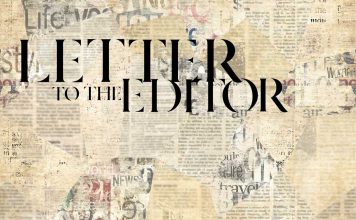A number of articles and columns have been written in The
Dispatch over the last year about Gilroy’s library. As recent as
June 7, an article about the library said
”
County library users can breathe a sigh of relief after an
optimistic library governing board passed the 2004-05 budget with
no additional cuts.
”
A number of articles and columns have been written in The Dispatch over the last year about Gilroy’s library. As recent as June 7, an article about the library said “County library users can breathe a sigh of relief after an optimistic library governing board passed the 2004-05 budget with no additional cuts.” The same article also said “The budget for new books and materials will still be cut but … if all goes as expected, … no staff will be laid off.” Bad news, good news.
Visiting the Gilroy library the other afternoon, it suddenly occurred to me to ask the question, “Why does the library, with its current budget constraints, buy and maintain hundreds of videos and DVDs for loan that are purely of an entertainment nature?” (And of course are based solely upon visual communication rather than reading text.) I mean, we’ve got Blockbuster and Hollywood Video here in town, stores that are well equipped to supply video and DVD products, so why is our library in that same business especially for entertainment titles? The next question followed, “couldn’t the money used to buy videos and DVDs be better spent on books?”
Now I suspect that some of you will say, “well, it’s how you define entertainment” and “aren’t novels and fiction works entertainment when printed in book format?” True.
I don’t want to split hairs at this point on definitions, and even though the dictionary defines a library as “A place in which literary and artistic materials, such as books, periodicals, newspapers, pamphlets, prints, records, and tapes, are kept for reading, reference, or lending”, my pragmatic question is, in this day and age of budget constraints on all levels of government, is a library’s role still to be “all things to all people?”
In other words, has the explosion of information via the Internet and the widening availability of low cost videos and DVDs created the need to reexamine the underlying philosophy of what a library on a limited budget should offer the general public?
If the original concept for the establishment of public libraries was to make available for loan a vast quantity of reading materials that would aid in the education of the public and in the sustaining of reading skills, then has the Gilroy library (and the Santa Clara library system) departed from the original intent with the purchase and loaning of entertainment videos and DVDs? I’ll let you answer that question.
Personally, I think the library should get out of the entertainment video and DVD business, and stick with the basics of supplying materials that contribute to the development of reading and research skills.
But even if the library stays in the video/DVD business, I wonder how the genre mix of purchases is determined, and by whom? How does the library system pick how many drama, horror, sci-fi, musical, family, comedy, adventure, mystery, etc. video/DVD categories will be purchased? Is there suppose to be a balance? Are “R” rated titles considered as fair purchases for general loan to the public? Who sets the rules, and who enforces them?
And even staying with the realm of printed material like books, I’m really surprised in this day and age of political correctness, emphasis on diversity, and love for lawsuits, that the county library system has not come under the burning torch of left-wing groups like the ACLU.
It only seems like a matter of time before such groups will file lawsuits against the county on the grounds that each local library must contain an appropriate number of books printed in the language in proportion to the population makeup of local community. Thus, if the local community is composed of 40 percent Hispanic and 5 percent Vietnamese populations, its library must contain a 40 percent representation of books written in Spanish, and a 5 percent representation of books written in Vietnamese out of its total volume of books.
And if such lawsuits won and were enacted as law, then it seems reasonable that such law would also be applicable to the selection of videos, DVDs, and newspapers available for loan or review in a library as well.
While this would create an administrative nightmare of record keeping and red tape, the job upside is that it could produce a whole new category of library staff whose sole job it would be to insure that such laws are being complied with. Call them library police. Of course, the money to staff such positions would have to come from the budget for materials. But I guess that’s the price for politically correct progress.











